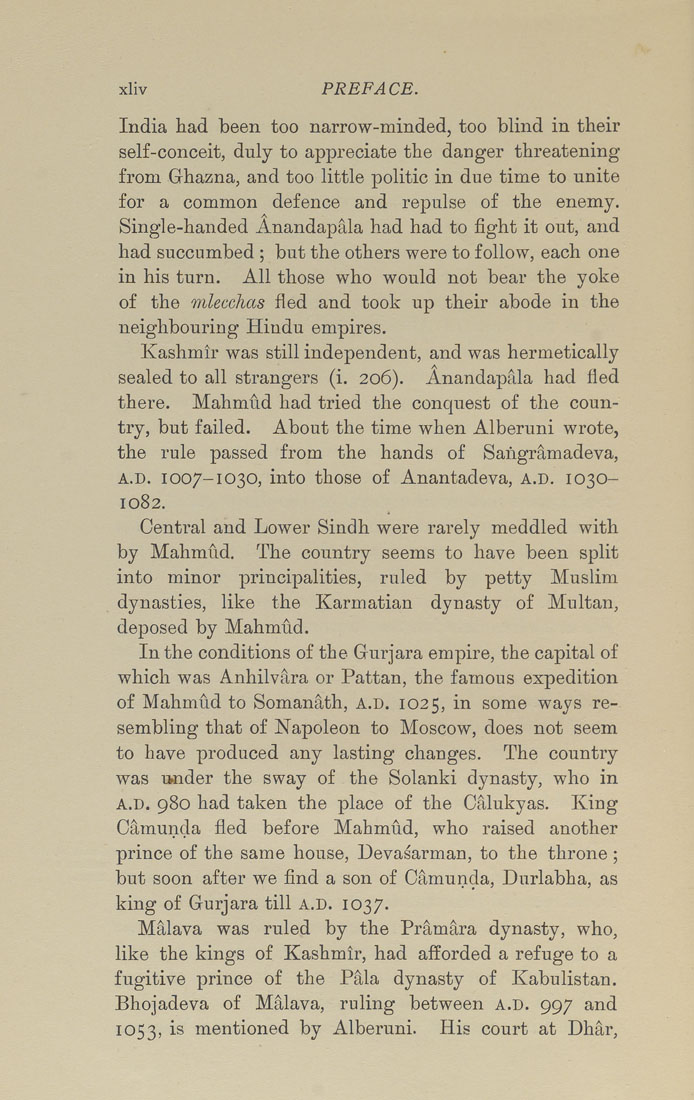Bīrūnī, Muḥammad ibn Aḥmad, Alberuni's India (v. 1)
(London : Kegan Paul, Trench, Trübner & Co., 1910.)
|
||
|
|
|
|
| Page xliv |

xliv PREFACE. India had been too narrow-minded, too blind in their self-conceit, duly to appreciate the danger threatening from Ghazna, and too little politic in due time to unite for a common defence and repulse of the enemy. Single-handed Anandapala had had to fight it out, and had succumbed ; but the others were to follow, each one in his turn. All those who would not bear the yoke of the mlecchas fled and took up their abode in the neighbouring Hindu empires. Kashmir was still independent, and was hermetically sealed to all strangers (i. 206). Anandapala had fled there. Mahmud had tried the conquest of the coun¬ try, but failed. About the time when Alberuni wrote, the rule passed from the hands of Sahgramadeva, A.D. 1007-1030, into those of Anantadeva, A.D. 1030- 1082. Central and Lower Sindh were rarely meddled with by Mahmud. The country seems to have been split into minor principalities, ruled by petty Muslim dynasties, like the Karmatian dynasty of Multan, deposed by Mahmud. In the conditions of the Gurjara empire, the capital of which was Anhilvara or Pattan, the famous expedition of Mahmud to Somanath, a.d. 1025, in some ways re¬ sembling that of Napoleon to Moscow, does not seem to have produced any lasting changes. The country was i*nder the sway of the Solanki dynasty, who in a.d. 980 had taken the place of the Calukyas. King Camunda fled before Mahmud, who raised another prince of the same house, Devasarman, to the throne ; but soon after we find a son of Camunda, Durlabha, as king of Gurjara till a.d. 1037. Malava was ruled by the Pramara dynasty, who, like the kings of Kashmir, had afforded a refuge to a fugitive prince of the Pala dynasty of Kabulistan. Bhojadeva of Malava, ruling between a.d. 997 and 1053, ^^ mentioned by Alberuni. His court at Dhar, |
| Page xliv |







